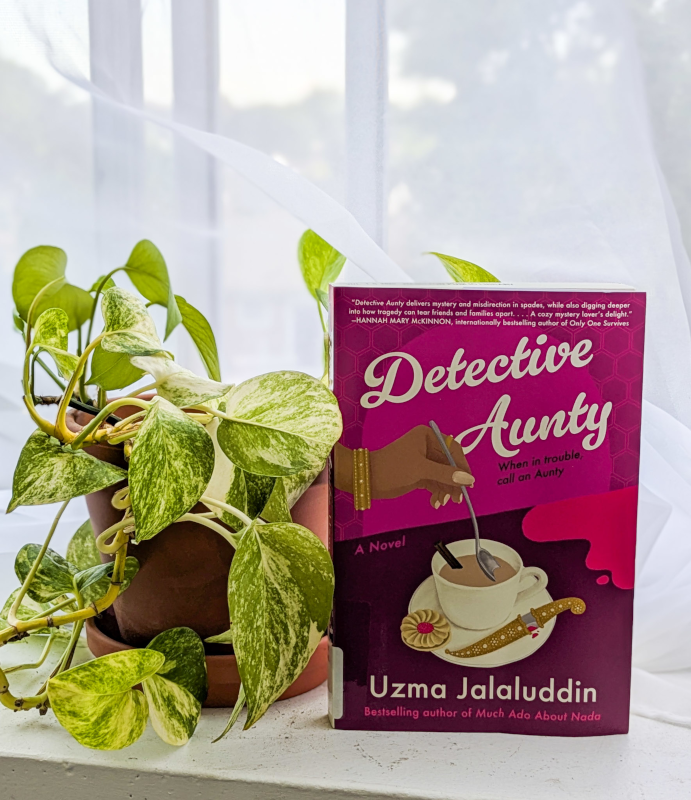3 Captivating Nonfiction Recommendations to Add to Your TBR

For longer than I'd like to admit, my idea of nonfiction was limited to newspapers and academic texts (textbooks and journal articles). After university, when I started reading for pleasure, I realized there was more to nonfiction than I had previously thought. Some of the most popular forms of nonfiction include self help, memoirs/biographies/autobiographies and personal essays. If you're looking for new nonfiction books to add to your list, check out some of my go-to nonfiction recommendations.
I'm Telling the Truth But I'm Lying: Essays by Bassey Ikpi
Get it here : Amazon | Libro.fm
Click here to read synopsis
From her early childhood in Nigeria through her adolescence in Oklahoma, Bassey Ikpi lived with a tumult of emotions, cycling between extreme euphoria and deep depression—sometimes within the course of a single day. By the time she was in her early twenties, Bassey was a spoken word artist and traveling with HBO's Def Poetry Jam, channeling her life into art. But beneath the façade of the confident performer, Bassey's mental health was in a precipitous decline, culminating in a breakdown that resulted in hospitalization and a diagnosis of Bipolar II.
In I'm Telling the Truth, But I'm Lying, Bassey Ikpi breaks open our understanding of mental health by giving us intimate access to her own. Exploring shame, confusion, medication, and family in the process, Bassey looks at how mental health impacts every aspect of our lives—how we appear to others, and more importantly to ourselves—and challenges our preconception about what it means to be "normal." Viscerally raw and honest, the result is an exploration of the stories we tell ourselves to make sense of who we are—and the ways, as honest as we try to be, each of these stories can also be a lie.
 I listened to this in 2020 and it was quite the experience. Bassey’s talent as a writer and narrator is undeniable. Listening to her describe her life challenges through the lens of mental illness was heartbreaking. She is raw, honest, and unflinching as she details broken relationships, harmful coping strategies, receiving a diagnosis and the rotating door of medication adjustments and dosage changes while seeking symptom management.
I listened to this in 2020 and it was quite the experience. Bassey’s talent as a writer and narrator is undeniable. Listening to her describe her life challenges through the lens of mental illness was heartbreaking. She is raw, honest, and unflinching as she details broken relationships, harmful coping strategies, receiving a diagnosis and the rotating door of medication adjustments and dosage changes while seeking symptom management.
Black women telling their stories of mental illness is what we need more of. "The Strong Black Woman" narrative is harmful because others think we're invincible, so we feel like we must be. As such, the tell-tale signs of various mental illnesses are missed or explained away causing us to be misunderstood. When we need help sometimes we are unable to ask for it and sometimes unwilling to accept it when it is offered. Empathically understanding the pervasive nature of mental illness and its profound effects on one’s inner experience and relationship with the world, is paramount in removing stigma and creating a more compassionate and inclusive society.
From The Ashes by Jesse Thistle
Get it here: Amazon | Libro.fm
Click here to read synopsis
In this extraordinary and inspiring debut memoir, Jesse Thistle, once a high school dropout and now a rising Indigenous scholar, chronicles his life on the streets and how he overcame trauma and addiction to discover the truth about who he is.
If I can just make it to the next minute...then I might have a chance to live; I might have a chance to be something more than just a struggling crackhead.
From the Ashes is a remarkable memoir about hope and resilience, and a revelatory look into the life of a Métis-Cree man who refused to give up.
Abandoned by his parents as a toddler, Jesse Thistle briefly found himself in the foster-care system with his two brothers, cut off from all they had known. Eventually the children landed in the home of their paternal grandparents, whose tough-love attitudes quickly resulted in conflicts. Throughout it all, the ghost of Jesse’s drug-addicted father haunted the halls of the house and the memories of every family member. Struggling with all that had happened, Jesse succumbed to a self-destructive cycle of drug and alcohol addiction and petty crime, spending more than a decade on and off the streets, often homeless. Finally, he realized he would die unless he turned his life around.
In this heartwarming and heart-wrenching memoir, Jesse Thistle writes honestly and fearlessly about his painful past, the abuse he endured, and how he uncovered the truth about his parents. Through sheer perseverance and education—and newfound love—he found his way back into the circle of his Indigenous culture and family.
An eloquent exploration of the impact of prejudice and racism, From the Ashes is, in the end, about how love and support can help us find happiness despite the odds.
 I read From The Ashes for book club in 2020 and it was in my top 5 of the year. Thistle's debut novel was a contender in CanadaReads 2020 and the 2nd best-selling Canadian Book of 2020. Like a lot of the books I read that year, I don't think I would have read this on my own. We had the opportunity to virtually meet with Jesse and it was one of the highlights of 2020 for me. He was so open and honest with us as we asked questions about the book and his life.
I read From The Ashes for book club in 2020 and it was in my top 5 of the year. Thistle's debut novel was a contender in CanadaReads 2020 and the 2nd best-selling Canadian Book of 2020. Like a lot of the books I read that year, I don't think I would have read this on my own. We had the opportunity to virtually meet with Jesse and it was one of the highlights of 2020 for me. He was so open and honest with us as we asked questions about the book and his life.
From The Ashes manages to be both heartbreaking and inspiring. No one should have any of the experiences Jesse outlines in this book. But in reality, some of the ordeals he went through are common for many individuals experiencing homelessness, struggling with substance abuse and battling their own inner demons. I've thought about this book so much since I finished it. About the ineffective policies, harmful myths and misconceptions, the moral superiority and stigma, that reinforce and act against those who want to break cycles and forge a different path.
This book showed me how easy it can be to reduce people who face some of the struggles Jesse details in his book to labels. It is necessary to understand they are complete people, worthy of self-determination, respect and assistance on their terms without paternalism or contempt. When you find yourself ready to pass judgment, as you read this book or engage with initiatives for marginalized persons in your community, I ask that you introspect on those feelings. And then consider them from the perspectives of Jesse and others who have faced similar struggles as whole people and not labels.
This is Assisted Dying by Stefanie Green MD
Get it here: Amazon | Libro.fm
Click here to read synopsis
Dr. Stefanie Green has been forging new paths in the field of medical assistance in dying since 2016. In her landmark memoir, Dr. Green reveals the reasons a patient might seek an assisted death, how the process works, what the event itself can look like, the reactions of those involved, and what it feels like to oversee proceedings and administer medications that hasten death. She describes the extraordinary people she meets and the unusual circumstances she encounters as she navigates the intricacy, intensity, and utter humanity of these powerful interactions.
Deeply authentic and powerfully emotional, This Is Assisted Dying contextualizes the myriad personal, professional, and practical issues surrounding assisted dying by bringing readers into the room with Dr. Green, sharing the voices of her patients, her colleagues, and her own narrative. As our population confronts issues of wellness, integrity, agency and community, and how to live a connected, meaningful life, this progressive and compassionate book by a physician at the forefront of medically assisted dying offers comfort and potential relief.
This Is Assisted Dying will change the way people think about their choices at the end of life, and show that assisted dying is less about death than about how we wish to live.
 After spending 12 years in maternity and newborn care, Dr. Stefanie Green’s focus changed to providing medical assistance in dying (MAiD). This Is Assisted Dying is a recounting of Dr. Green's first year providing MAiD in British Columbia. In an emotive and educational manner, Green details the history of MAiD in Canada—from the Rodriguez case in the early 1990s, to Carter v. Canada in 2011, to details on the way the unanimous decision of the Supreme Court in 2015 changed end-of-life care in Canada. Green also highlights similarities and differences between Canadian legislation and regulation of MAiD to those in other parts of the world.
After spending 12 years in maternity and newborn care, Dr. Stefanie Green’s focus changed to providing medical assistance in dying (MAiD). This Is Assisted Dying is a recounting of Dr. Green's first year providing MAiD in British Columbia. In an emotive and educational manner, Green details the history of MAiD in Canada—from the Rodriguez case in the early 1990s, to Carter v. Canada in 2011, to details on the way the unanimous decision of the Supreme Court in 2015 changed end-of-life care in Canada. Green also highlights similarities and differences between Canadian legislation and regulation of MAiD to those in other parts of the world.
Through portraits of her patients, Green outlines the eligibility for and the process of MAiD. Readers get a glimpse of what the event and final goodbyes may look and feel like. Dr. Green writes in a way that makes all parts of the book easy to understand. Readers who were not previously familiar with MAiD or do not have a medical or legal background will be able to follow along easily.
From the title, one might assume This Is Assisted Dying is a melancholic read about death, suffering, and grief. While those themes are present, the focal points are the hope, choice, and control MAiD can bring to people facing terminal illnesses. Ethics, law, and family relationships and dynamics are also explored through the final goodbyes and events of Dr. Green’s patients.
The spectre of death hangs over us like an elephant in the room. Whether it be ailing loved ones or aging parents it is always challenging to face our mortality. The stories of her patients provide an opening to broach these difficult conversations. This Is Assisted Dying is an engaging book that will stay with readers long after they’ve turned the last page.
When I'm asked for nonfiction recommendations, the above are usually the first three I suggest. These books explore challenging topics that deserve to be spoken about more often and more widely. Each of these authors discusses complex themes and issues with considered nuance that leaves readers pondering and reflecting long after they've finished reading the book. If you're looking for some new nonfiction titles, give these a try. If you've already read these and know of others I might enjoy, share the titles with me below.



